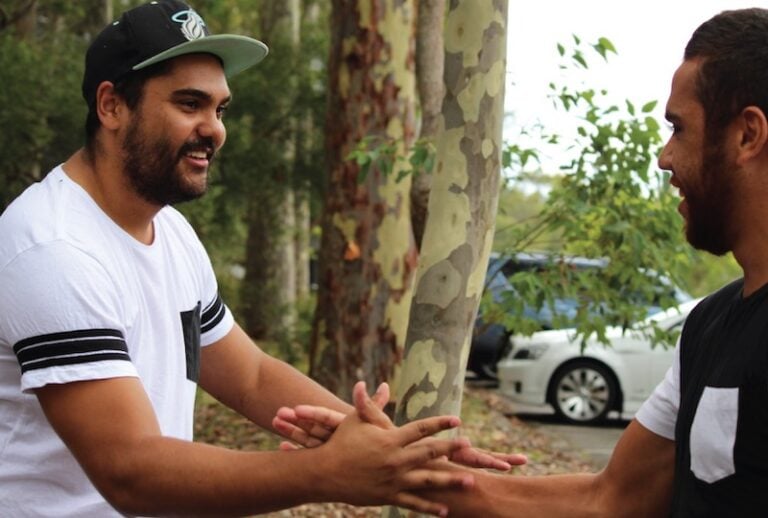
We hope you enjoy these articles – for dads, for professionals, for everyone.
If you would like to contribute a blog or article or have an item of interest for SMS4dads audience, feel free to GET IN TOUCH


SIGNS & SURVIVAL TIPS Listen in to Matt Stanton, Clinical Psychologist and father of three talking about his ideas and insights into stress in dads.

Find out the latest about dads and paternal leave. The articles below are designed to provide information about important topics that help dads navigate things

TAKING LEAVE Costs, Timing and Tax The information on this page is a guide to advice found on publically available websites. It is not professional

CHILDCARE What to expect Finding quality and affordable child care remains one of the key barriers for parents’ return to work plans. It’s important to

RETURNING TO WORK Why ‘Keeping in Touch’ is helpful If you are taking extended leave when your baby is born, before starting it is important

The SMS4dads messages are sent to fathers in a brief text. This makes them easy to translate into other languages. It also means that

WHEN THINGS DON’T GO TO PLAN Following feedback from mums and dads and clinicians working in the perinatal space, SMS4dads partnered with PANDA, Red Nose,


PLANNING YOUR LEAVE What’s in it for dads? Here are two dads who took extended parental leave when their children were born and the difference

What is Kangaroo Care? Kangaroo care mimics the marsupial model where a joey finds warmth and security within the pouch, close to the mother’s heart.

Fathers’ Leave is on the agenda at the upcoming Jobs and Skills Summit – Parliament House 1-2 September Key themes at the summit are gender equality, raising

As dads, there are lots of things that can feel out of our control – like what day our baby is born, COVID lockdowns, the

When you are with your baby you are helping their brain develop. How you interact with your bub will be making connections happen in their

Even though in the hardest hit states restrictions are easing we do expect that restrictions on hospital attendance will be in place from time to

When it comes to a baby’s diet dads have a big effect. Once your baby is eating solid foods dads can help manage what they

We want to check if dads who are getting the text messages are doing OK. The time around the birth and afterwards is really busy

Dads have a major influence on whether or not mum’s access help when they might need it and how they manage the challenges of pregnancy

Now that we are coming out of the pandemic tunnel the task of balancing work and family must be figured out again. Many dads have

Did you know that nearly 10% of babies are born early (less than 37 weeks)? Dads of these babies can have some extra challenges, especially

What do young Aboriginal fathers say about responsibility, support and being an Aboriginal dad? We interviewed young Aboriginal fathers who had been involved in building
Richard’s research revealed possible long-term negative impacts on the children of dads with mental health issues. Fathers’ depressive symptoms in the first year after the birth predicted behaviour problems in their children years later.
“If dads’ mental health has such a dramatic impact then we need to be screening dads for depression, not just mums,” Richard explains.
In response to these limitations, Richard and his team have designed a smart-phone based program that allows mobile connection for new and expectant dads.
Participants receive texts containing information and links, and self-report their mood. If the mood tracker identifies dads as needing extra support, they will be offered a phone call from a counsellor trained in this area.
Following the success of the pilot of the SMS4dads program, Funding was received to enable a National roll-out.
“When dad’s miss antenatal classes or activities, they also miss out on contact and links to other people. They may never get the chance to say to anyone, look I’m really stressed,” he points out.
“SMS4dads is a way of bringing dads into the health system and keeping them linked in with services and support,” explains Richard.
Richard credits a varied career, a talented and innovative team, and much life experience for affording him the insight needed to address the challenges related to actively engaging dads.
After completing his masters in Medical Science, studying epidemiology, Richard earned his PhD focusing on fathers and attachment.
“Fathers are invisible in many places, and that is endemic. Not because people dislike fathers, but because the system is set up to be focused on mothers.”
Some services and organisations are aware of the need to engage dads, but have been unsuccessful in their attempts.
“When people are challenged about this, they generally want dads involved,” Richard affirms.
“Often, however, they just don’t know how to do it.”
Richard works with health professionals on issues related to fathers, and has delivered many antenatal programs for expectant dads.
He credits his own family with giving him an understanding of the role of fathers needed to make his work relevant.
“I have three daughters and two stepdaughters,”
“My kids would say they taught me just about everything I know and they’d be right. They’ve taught me a lot, and still do.”
Richard’s research revealed possible long-term negative impacts on the children of dads with mental health issues. Fathers’ depressive symptoms in the first year after the birth predicted behaviour problems in their children years later.
“If dads’ mental health has such a dramatic impact then we need to be screening dads for depression, not just mums,” Richard explains.
In response to these limitations, Richard and his team have designed a smart-phone based program that allows mobile connection for new and expectant dads.
Participants receive texts containing information and links, and self-report their mood. If the mood tracker identifies dads as needing extra support, they will be offered a phone call from a counsellor trained in this area.
Following the success of the pilot of the SMS4dads program, Funding was received to enable a National roll-out.
“When dad’s miss antenatal classes or activities, they also miss out on contact and links to other people. They may never get the chance to say to anyone, look I’m really stressed,” he points out.
“SMS4dads is a way of bringing dads into the health system and keeping them linked in with services and support,” explains Richard.